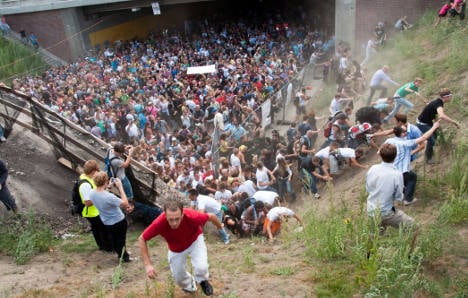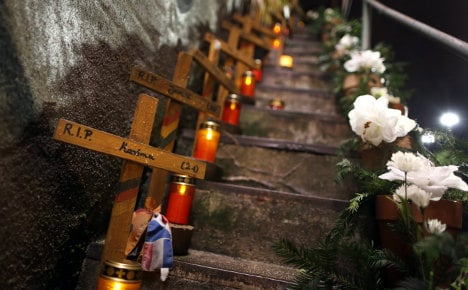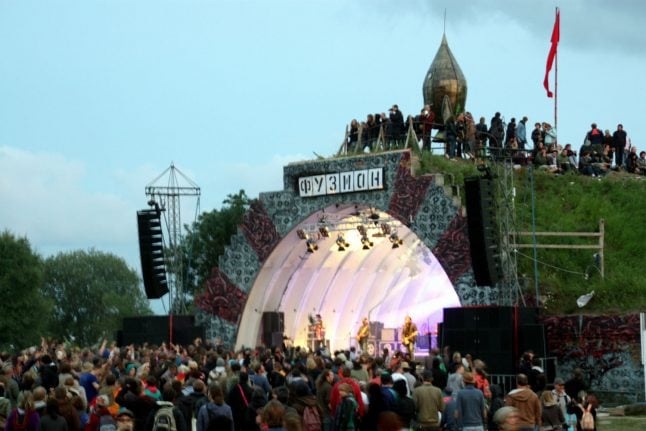The first civil case against event organizers behind the fateful Duisburg Love Parade will begin on Tuesday – five years after the beloved music fest turned into a deadly disaster.
A 53-year-old firefighter is suing the former Love Parade event company Lopavent, its boss and the state of North Rhine-Westphalia in civil court for damages amounting to €90,000 for pain and suffering caused by the event.
This will be the first civil trial since the tragedy on July 24th 2010 left 21 people suffocated or crushed to death by crowds at the electronic dance music fest.
SEE ALSO: July 24th 2010: The day the music stopped
The annual festival, which had grown rapidly since forming in Berlin in 1989, took place inside an abandoned freight station that was only accessible via a single ramp.
The venue became a death trap as thousands squeezed onto the entrance ramp, overcrowding the space and causing people to panic as they tried to escape.
Fifteen people suffocated at the scene, while a further six died later from injuries sustained in the crowd. More than 500 festival-goers were injured.
The firefighter bringing the lawsuit, identified by Bild tabloid as Ralf S., said during the crush, he worked to try and save victims – and the experience proved impossible to come to terms with. Traumatized, the firefighter was forced to give up his job.
“Since July 24th 2010, my world has fallen apart,” he told Bild.

Festival-goers fought to escape the crush. Photo: DPA
Several other civil action cases are also still pending and are set to begin in the fall.
Pointing fingers
Immediately after the tragedy, event planners and city officials accused one another of being at fault for the deaths.
Organizer Rainer Schaller blamed the police, claiming that mistakes in crowd control had ultimately led to the disaster.
But the state interior minister rejected this claim, laying the blame squarely at Schaller and his company Lopavent's door.
Duisburg Mayor Adolf Sauerland also came under fire from protesters who claimed he had known that security provisions were sub-standard, but had allowed the event to go ahead anyway. Hundreds rallied at the city hall demanding his resignation.
In February 2014, charges were filed against six Duisburg public servants and four Lopavent employees, including involuntary manslaughter and bodily injury due to negligence. This criminal case is still ongoing and has not yet been brought to trial.
Both Schaller and Sauerland were exonerated. Prosecutors stated that both men were “entitled to be confident that the persons who were responsible for the planning and approval would duly check the project on the basis of their expertise”.



 Please whitelist us to continue reading.
Please whitelist us to continue reading.
Member comments